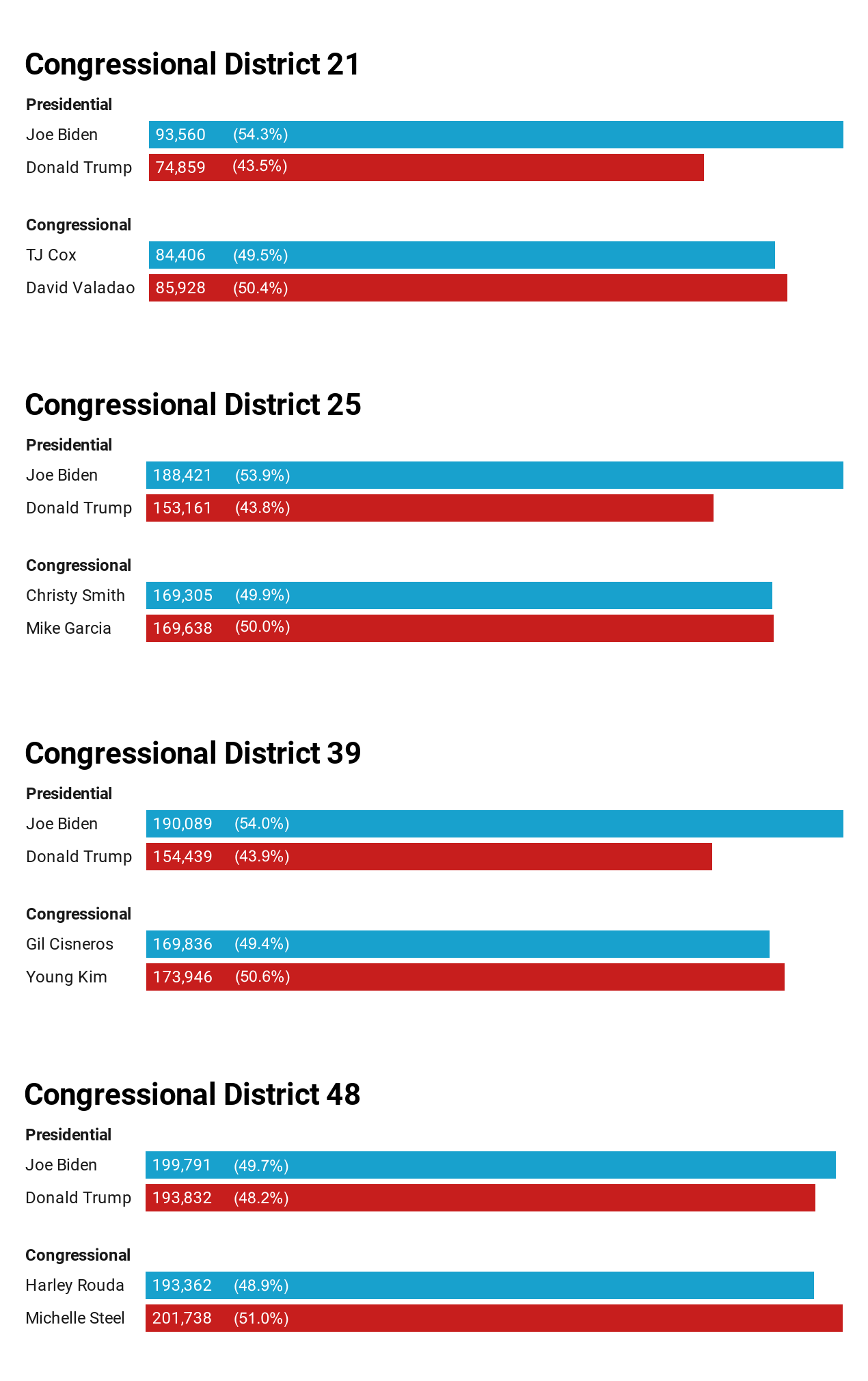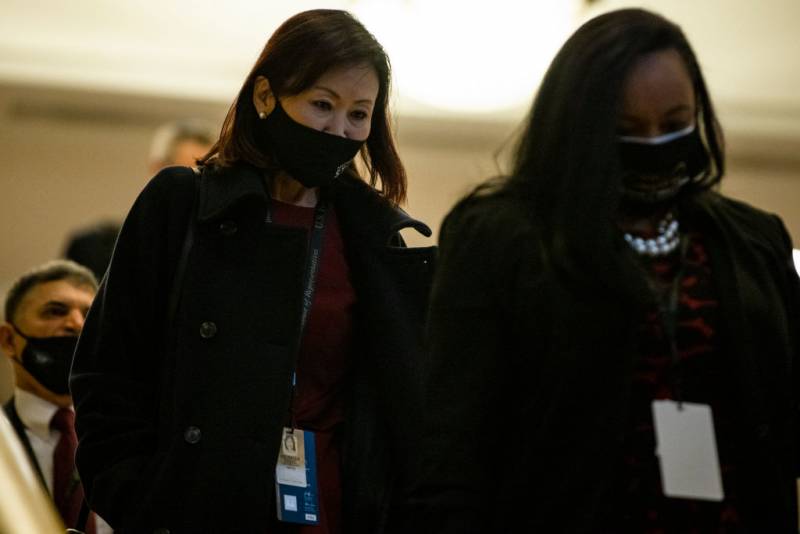Republican campaigns to win back seven California House seats the party lost in 2018 had to contend with a basic truth in this last election: Voters there had not warmed to President Trump during his first term.
“If the race was going to come down to Trump, we had a very good idea how these seven seats were going to play out again in 2020,” said Sam Oh, a Republican consultant with the firm Targeted Victory.
Oh led the winning campaigns of Congresswomen-elect Young Kim and Michelle Steel, two of the four Republicans who ultimately flipped House seats that Democrats won in the 2018 midterms.

“We knew that going into the campaign, there was a very good chance that the Democratic [presidential] nominee would carry these districts again,” said Oh on KQED’s Political Breakdown. “And one of the things that we wanted to do was create a path to victory that made sense, that we thought was realistic.”
That path included factors the campaigns could control, like recruiting diverse candidates with local roots, focusing on issues close to home and making selective (though rare) breaks with the president. The campaigns also may have benefited from having Trump on the ballot to bear the brunt of voter disappointment in his performance, potentially shielding down-ballot candidates.
In these four key California House districts, voters picked Joe Biden (often by wide margins) over Trump, but still sent Republicans to Congress, according to district data from the non-partisan California Target Book.
“The results confirm that in these districts, as in California as a whole, Trump is pretty massively unpopular,” said Darry Sragow, publisher of the California Target Book and a former Democratic consultant. “But it doesn’t mean the Republicans have abandoned their faith.”
The Republican victories in 2020 came in the Central Valley’s 21st District, the 25th District in northern Los Angeles and Ventura counties and the 39th and 48th districts in Orange County.
In 2016, Trump lost all four districts, which caught the attention of national Democrats and led to the 2018 “Blue Wave” — when Democrats flipped those seats and three others in California.
In 2018, the president remained personally unpopular in California, and his policies, including the attempted repeal of the Affordable Care Act, family separations at the border and tax reform that limited deductions for many California suburbanites, drew the ire of Golden State voters.
“But in 2018, Trump wasn’t on the ballot,” Sragow said. “And so you can conclude that voters who might otherwise vote for Republican candidates for congressional and legislative seats took their anger out on the party and did not vote for those Republican candidates who they otherwise would have supported.”

